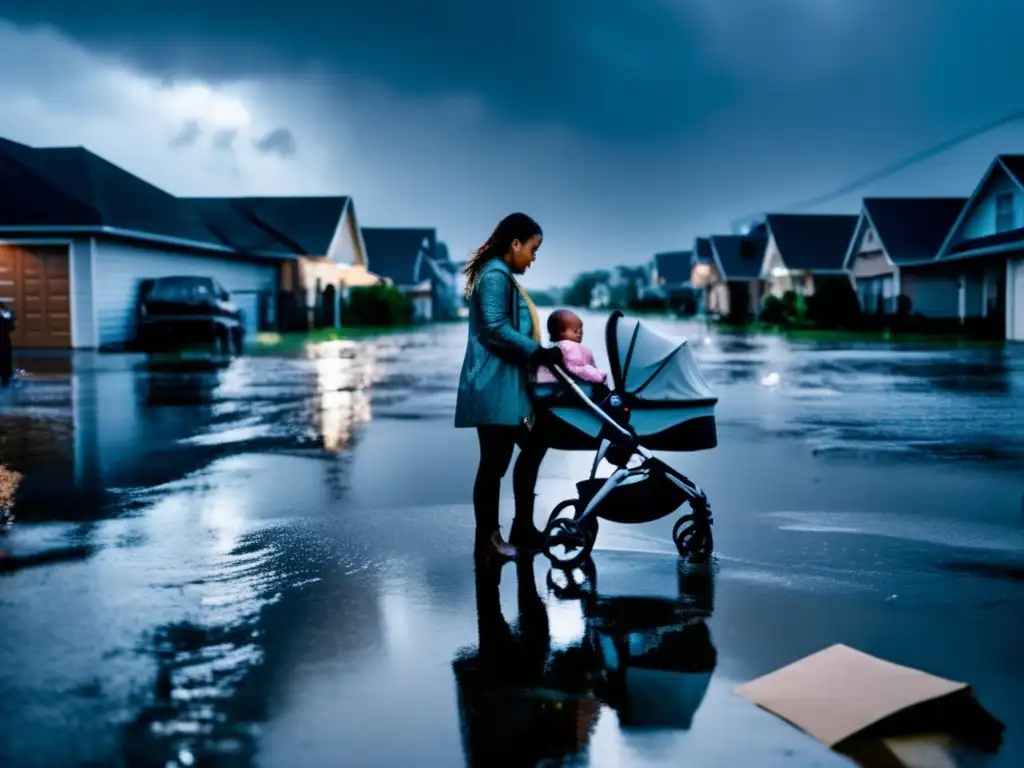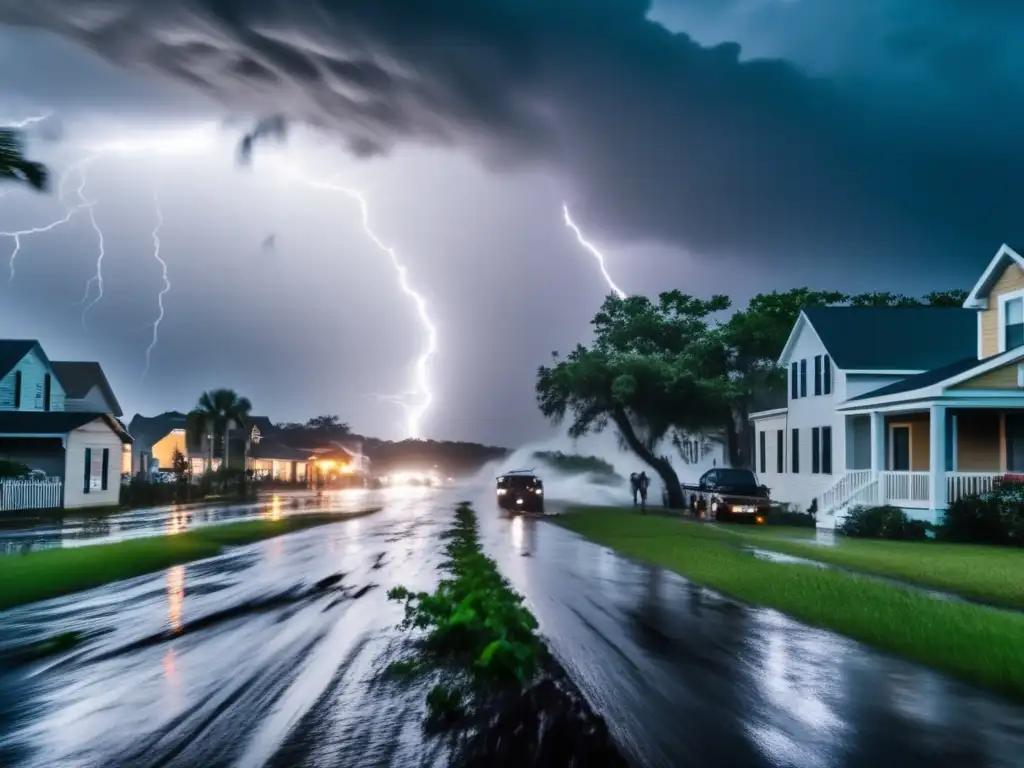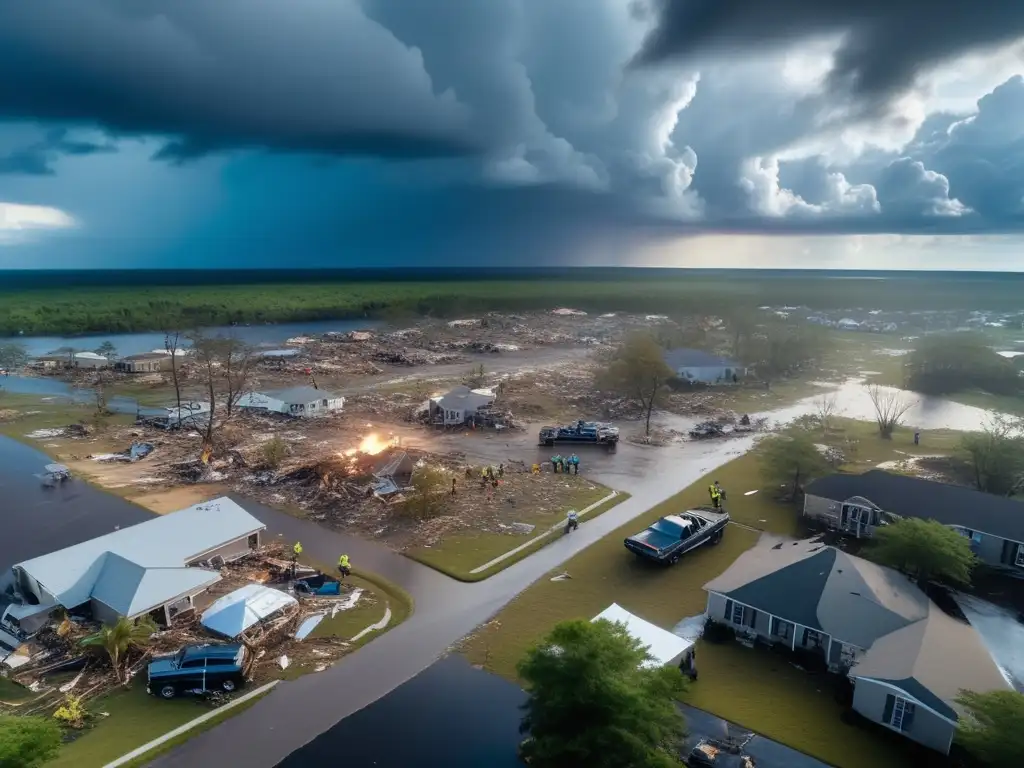The Health Risks Associated With Hurricanes

The Health Risks Associated with Hurricanes
Introduction
Every year, hurricanes cause immense physical damage to infrastructure and properties. However, not many people are aware of the health risks associated with hurricanes. In addition to the destruction of property, hurricanes pose serious health risks to individuals and communities in their path. This article intends to inform you about the potential health hazards that hurricanes can cause and how to protect yourself from them.

Waterborne Diseases
Waterborne diseases are among the most common and severe health risks associated with hurricanes. Floodwaters often contain various pathogens such as bacteria, viruses, and parasites that can cause diseases such as cholera, typhoid fever, and Hepatitis A. It is imperative to avoid contact with floodwater and consume only safe drinking water. If you need to use tap water, boil it before using it for drinking, cooking, or brushing your teeth.
Vector-Borne Diseases
Vector-borne diseases are transmitted by insects such as mosquitoes. After a hurricane, stagnant water left behind by floods creates an ideal breeding ground for mosquitoes, putting people at risk for illnesses such as dengue fever, Zika virus, and West Nile virus. Use mosquito repellent, wear long-sleeved shirts and pants, and avoid going outside during peak mosquito activity hours to prevent mosquito bites.
Mold Exposure
Flooding can also create a breeding ground for mold. Mold spores can cause respiratory problems such as coughing, wheezing, and asthma attacks. Avoid spending too much time in damp or flooded areas, and make sure to clean and dry any wet or damp areas in your home or office.
Mental Health Risks

Post-Traumatic Stress Disorder (PTSD)
Hurricanes can cause severe psychological trauma, especially for those who have had first-hand experiences of loss or injury. PTSD is a mental health disorder that can develop in individuals who have experienced or witnessed traumatic events such as natural disasters. Symptoms of PTSD include flashbacks, nightmares, anxiety, and depression. If you or someone you know is experiencing symptoms of PTSD, seek professional help from a mental health provider.
Anxiety and Depression
Anxiety and depression are common mental health conditions that can result from the stress and disruptions associated with hurricanes. Seek support from friends and family, practice self-care, and engage in stress-reducing activities such as exercise and meditation to alleviate symptoms of anxiety and depression.
Grief and Loss
Loss of personal belongings, homes, and loved ones can cause intense feelings of grief and sadness. It's important to allow yourself to grieve and seek support from family, friends, and mental health professionals if needed.
Injuries and Trauma

Physical Injuries
Hurricanes can cause physical injuries such as cuts, bruises, fractures, and head injuries. Pay attention to any safety warnings, avoid walking or wading in floodwater, and use appropriate protective gear when clearing debris or repairing damage.
Electric Shock
After a hurricane, it's common for electricity lines and equipment to become damaged, creating an immediate electric hazard. Avoid touching any electrical wires or equipment that may have been damaged during the storm.
Carbon Monoxide Poisoning
Carbon monoxide poisoning is a serious risk after a hurricane. Using gas-powered generators or other fuel-burning equipment indoors or in poorly ventilated areas can lead to carbon monoxide buildup and poisoning. Always use these appliances in well-ventilated areas and never inside your home.
Frequently Asked Questions

-
What are the most common waterborne diseases associated with hurricanes?
The most common waterborne diseases associated with hurricanes include cholera, typhoid fever, and Hepatitis A.
-
How can I protect myself from mold exposure?
Avoid spending too much time in damp or flooded areas, and make sure to clean and dry any wet or damp areas in your home or office.
-
What should I do if I experience symptoms of PTSD?
If you or someone you know is experiencing symptoms of PTSD, seek professional help from a mental health provider.
-
What safety precautions should I take when clearing debris or repairing damage after a hurricane?
Pay attention to any safety warnings, avoid walking or wading in floodwater, and use appropriate protective gear.
-
How can I prevent carbon monoxide poisoning after a hurricane?
Always use gas-powered generators or other fuel-burning equipment in well-ventilated areas and never inside your home.
Conclusion
Although hurricanes can cause significant physical damage, they also pose various health risks that people should be aware of. Flood-related illnesses, mental health risks, and injuries and trauma are among the most common health hazards associated with hurricanes. However, individuals can take steps to protect themselves from these risks by staying informed, following safety guidelines, and seeking professional help when needed. It's essential to prioritize your health and well-being before, during, and after a hurricane.
Living in a hurricane-prone area can be challenging, but knowledge is power. With information on the potential health risks, you can take the necessary precautions to keep yourself and your loved ones safe. In conclusion, always stay informed, practice precautions, and seek help when necessary.
Additional Resources

 The Bizarre Phenomenon Of Anti-Cyclonic Hurricanes
The Bizarre Phenomenon Of Anti-Cyclonic Hurricanes Legal Implications And Policies Regarding Hurricanes
Legal Implications And Policies Regarding Hurricanes The Unsung Heroes: Volunteers In The Aftermath Of Hurricanes
The Unsung Heroes: Volunteers In The Aftermath Of HurricanesIf you want to discover more articles similar to The Health Risks Associated With Hurricanes, you can visit the Basic knowledge about hurricanes: category.
Leave a Reply

Articulos relacionados: